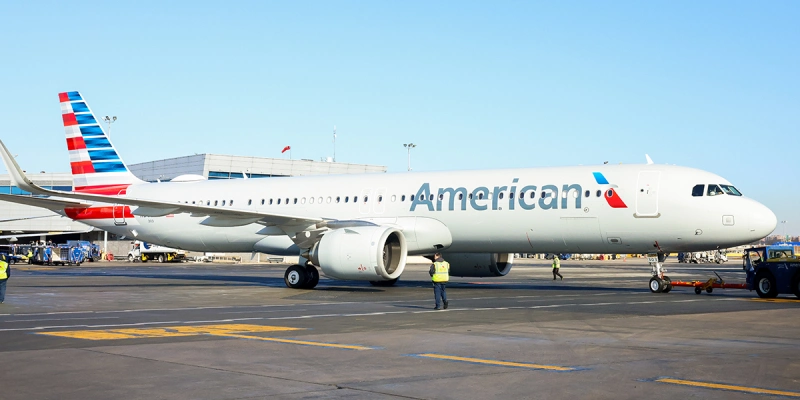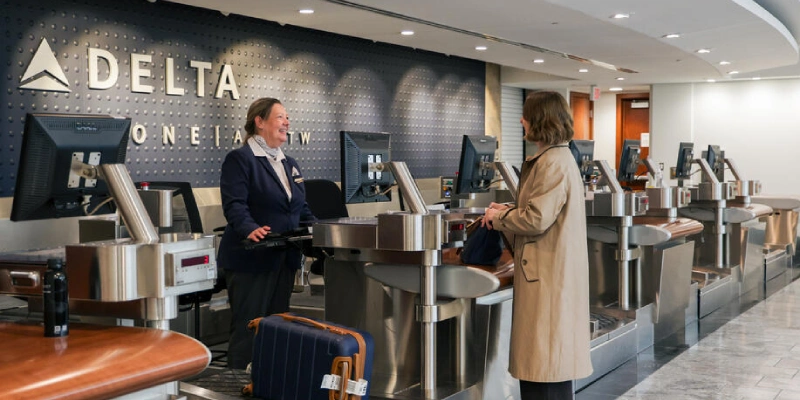Etihad Airways is exploring an uncommon strategy to navigate the bottlenecks affecting global aviation: acquiring cabin components—such as seats—in large volumes and storing them in Abu Dhabi until they are needed.
This move is a response to its ambitious $1 billion fleet modernization plan, a key investment given the delays in the delivery of new aircraft. However, the biggest challenge lies in synchronizing the arrival of the seats—considered among the most complex cabin elements—with the upgrade schedule.
“The cost of grounding five to seven aircraft would be enormous,” CEO Antonoaldo Neves explained in New York. “That’s why we say: deliver all the seats needed for about 50 aircraft within three months; we will store them and install them when it doesn’t impact the network.”
Pressure on Airbus and Boeing
Etihad’s strategy reflects how the aviation sector is seeking alternatives in the face of one of its biggest obstacles: delays in aircraft deliveries. Airbus and Boeing have spent years trying to stabilize their production lines but are facing component shortages and quality issues in their plants.
This forces airlines to operate older aircraft for longer, resorting to costly maintenance programs and cabin refurbishments to remain competitive.
The most notorious case is that of the 777X, with a delay of over five years. Airbus, for its part, has struggled to meet its commitments, while Boeing is only just beginning to regain its rhythm after years of turbulence.
→ Etihad Airways Expands Strategic Alliances to Position Abu Dhabi as a Global Air Transport Hub
A Regional Trend: Investing in the Existing Fleet
The clearest example is Emirates, which is allocating $5 billion to modernize aircraft like the Airbus A380 and Boeing 777. However, these refurbishments are also affected by parts shortages, which has led some airlines to ground aircraft, cancel flights, or lease temporary capacity.
For Etihad, cabin seats are not just an operational necessity but also a marketing tool. At a time when economy class demand is slowing in certain markets, the demand for premium travel continues to grow in key destinations like the United States, Europe, and the Middle East. This makes suspending operations even more difficult, according to Neves.
Regulatory Hurdles and Certifications
Not everything is limited to the supply chain. Certification processes by authorities like the FAA in the U.S. and EASA in Europe are also slowing down expansion plans.
“It’s frustrating; everything takes too long. The customer cannot wait,” Neves stated.
Record Results and Future Plans
In the first half of the year, Etihad reported a record profit of 1.1 billion dirhams ($306 million), driven by both passenger and cargo demand.
Although the state-owned airline is ready for a potential IPO, the decision depends on its shareholder, the CEO noted.
As part of its strategy to capitalize on the interest in luxury flights, Etihad will reactivate two additional Airbus A380s, bringing the total in operation to seven. These aircraft are notable for offering “The Residence,” an exclusive space with a bedroom, living room, and private shower.
One of the A380s was reassigned from New York to Toronto due to capacity limitations, although the company intends to return it to U.S. destinations.
Looking ahead, Etihad plans to nearly double its fleet to reach 200 aircraft within four or five years. However, the strategy does not involve large block purchases, but rather targeted acquisitions based on need.
Related Topics
More Than 1,000 Flights Canceled in the United States Due to Winter Storm Devin
American Airlines Launches Seasonal Route Between Chicago and Querétaro for Year-End High Season
American Airlines Debuts Airbus A321XLR on Transcontinental Route Between New York and Los Angeles
Delta Expands Delta One Check-In Spaces Across All Its U.S. Hubs

Plataforma Informativa de Aviación Comercial con 13 años de trayectoria.




